Itchy skin or pruritus is an irritating, often unpleasant sensation that makes you want to scratch. Itchy skin is often caused by a dry epidermis and is more common in older adults, as the skin becomes drier as we age.
ITCH SKIN - ITCH: General about itching | Causes of itching | Consult with a doctor | Diagnostics | Treatment | Conventional Medicine | Itchy vagina - why? | Questions and Answers| Sources/references
Depending on the cause of the itching, your skin may not look any different than usual or be inflamed, rough, or bumpy. However, repeated scratching can cause thickened areas of the skin, which can also bleed or become further infected.
Long-term relief requires identifying and treating the cause of the itch. Common treatments include medicated creams, moist compresses, and oral anti-itch medications.
Video content: itching, itchy skin, how to relieve it?

Itching of the skin can last for a long time and can be intense. For example, when you rub or scratch an area of skin, it becomes itchier, so the itching often becomes even more intense. Itchy skin can also affect smaller body areas, such as the scalp, hands, feet, or entire body, depending on the cause.
Skin itching may occur without other noticeable skin changes, but they may also occur:
- inflamed skin
- bumps, spots, or blisters
- dry, cracked skin
- leathery or scaly patches
Causes of itching - the leading causes of itchy skin
- fungal and bacterial infections such as impetigo and folliculitis
- allergic reactions to food, insect bites, pollen, and medicines
- skin diseases such as eczema and psoriasis
- irritant chemicals, cosmetics, and other substances
- parasites such as scabies and body lice
Video content: 5 most common reasons for itching

- pregnancy
- liver, kidney, or thyroid disease
- certain cancers or cancer medications
- diseases that can affect the nervous system, such as diabetes and shingles
When to see a doctor?
See your doctor or dermatologist if itching:
- lasting more than two weeks and not improving with self-care measures
- the itching is severe and distracts you from your daily routines or even prevents you from sleeping
- appears suddenly and cannot be easily explained
- affects the whole body
- co-occurs with other symptoms such as weight loss, fever, or night sweats
Diagnostics
Initially, the diagnosis is carried out using a physical examination. Then, your doctor may ask about your medical history and any medical complications, notes, etc.
What tests can be performed?
- Blood test - mainly the possibility of anemia is demonstrated, which can also indirectly cause itching.
- Kidney and liver function test - problems with kidney function concerning possible thyroid or liver diseases can contribute to more intense itching.
- X-ray of the chest - X-ray of the chest can indicate possible enlarged lymph nodes - problems with the lymph nodes often lead to problems with unpleasant itching.
Treatment and tips to relieve itchy skin
Conventional medicine
Treatment of itching based on conventional medicine is carried out by a doctor, who will prescribe certain medicines and medical products to help solve the problem.
Medications are prescribed based on the general symptoms that the doctor notices or that you explain to him yourself. For example, if itching is caused by eczema or psoriasis, the doctor often prescribes topical and oral medications.
Another way to relieve itching is to take antihistamines (example: Claritine, Zyrtec) and topical corticosteroids. If the problematic itchy area can be located more precisely, it is also possible to lubricate this type of area with an antihistamine cream.
Other effective solutions
Anti-itch creams
You can try a cream that contains hydrocortisone. This active ingredient suppresses inflammatory responses in the body and can help soothe inflamed, itchy skin. If over-the-counter creams don't help, your doctor or dermatologist may prescribe a corticosteroid cream.
Video content: Top 5 natural ways to relieve itching.

Corticosteroid creams should be used for a short time (usually 1 to 2 weeks) and then discontinued, as they can cause side effects such as thinner skin and possible addiction.
Colloidal oatmeal
This type of oatmeal is made from oats ground into an excellent powder. Colloidal oats are a natural product used in many soaps and lotions and can be added to a cold bath. Colloidal oatmeal can be found in many pharmacies, or you can prepare it yourself by grinding oats into a fine powder.
High-quality moisturizer
A quality moisturizer locks moisture into the outermost layer of your skin. Apply the moisturizing cream to damp skin after showering for better absorption.
Different moisturizers help with different causes of dry skin. Some moisturizers, such as beeswax, coconut, and mineral oil, prevent moisture loss by creating a barrier. Other moisturizers, such as glycerin, can help restore the skin's barrier.
Cold wraps
One of the possible solutions for immediate relief of itchy skin is a cold compress or bag filled with ice. Avoid exposing the affected area to hot water as much as possible. This will further irritate the itchy skin.
Vaseline
If you have dehydrated, cracked, and itchy skin, you may want to consider using a petroleum jelly-based product. These products can also be used on the face, including more sensitive areas such as the eyelids and lips. While petroleum jelly works best on damp skin, you can still apply these products to dry skin as needed throughout the day.
Resist the urge to scratch.
When you itch, scratching is a natural response. However, this will not help the problem. Scratching can further damage your skin, preventing it from healing. Instead, wear comfortable clothes made of natural materials that do not irritate the skin, and ensure your nails are trimmed properly.
Wearing cotton gloves at night is also helpful to prevent scratching your skin while you sleep.
Use perfume-free cosmetics
It is essential to carefully read the ingredients of the cosmetic product and choose cosmetics specifically labeled as "fragrance-free" to prevent further skin irritation. This is especially important if you have eczema, psoriasis, or rosacea.
Wet wrap therapy
Wet wrap therapy involves applying water-soaked cloth wraps made of gauze or surgical mesh to areas of itchy skin. These wraps rehydrate and soothe the skin while providing a physical barrier that protects against scratching.
Before applying wet compresses, gently rub or tap the medicine into the skin and apply a generous moisturizer layer.
Baking soda
Baking soda has cleaning properties. Therefore, we recommend adding one-quarter cup of baking soda to a warm bath.
Video content: how to relieve itching naturally?

Alternatively, mix baking soda with some water to make a paste that you can apply directly to the itchy areas.
Pure aloe vera gel
The aloe vera plant has been used for centuries to treat various conditions, especially burns, wounds, irritation, and constipation. Aloe vera can soothe redness and reduce skin dryness. In addition, it has exceptional moisturizing abilities. Use pure 100% aloe vera gel that does not contain irritants and allergens.
Why do my testicles itch?
Itching of the testicles or the skin around them - especially the scrotum (the sac of skin that holds the testicle in place) is not unusual. The reason may be mainly sweating throughout the day, resulting in itching in this area, which is normal.
General personal hygiene can also be a problem - dirt and salt from sweating during the day can cause your testicles to itch more than usual.
Itching of your testicles is not always the result of personal hygiene; other medical conditions cause this discomfort. For some of these conditions, you may need to consult with your doctor about a treatment plan or medication to address the source of the itching.
What causes itchy testicles?
Possible causes of itchy testicles can be the following:
Rubbing or irritation
Dry skin around the genitals is common when it is hot. Prolonged physical activity or possibly exercise can also irritate the genital areas. Sometimes, the skin can become so irritated that it causes bleeding.
Video content: Itchy testicles? Therefore...

Some common signs of excessive rubbing and irritation include:
- the sensation of skin rawness to the touch
- redness or rashes on the skin
- superficial skin cuts
- fungal infections
Fungi are almost invisible to the naked eye, but they usually live in huge, practically invisible colonies even when they settle on your body. If you have unprotected sex or do not care for your intimate hygiene, fungal infections can quickly develop around the genitals and testicles.
One of the most common fungal infections of the genitals is candidiasis. Candida fungi live in or on the body, as well as in the intestines and skin. If they grow unchecked, they can cause infection.
Another type of fungus called dermatophytes can cause a similar infection called jock itch. This also often causes at least the fact that we want to scratch ourselves from time to time.
Frequently Asked Questions and Answers
When is itchy skin a concern?
The itching that is bothering you should improve within a couple of weeks or even faster if you follow some nourishing and regenerative cosmetic procedures. However, if cosmetic advice does not help in the case of itching or if the condition even prevents you from sleeping, you must seek a dermatologist or doctor as soon as possible. Last, persistent itching can result from liver or kidney disease[1].
How to relieve itching that appears all over the body?
For temporary relief from itching, try these measures:
- Avoid objects or situations that cause itching...
- Moisturize dry and irritated skin daily...
- Nurture your scalp...
- Use creams, lotions, or gels that soothe and cool the skin...
- Avoid scratching and further skin irritation...
- Take a bath to moisturize your skin...
- reduce stress or anxiety...
- Use allergy medicine as advised by a pharmacist or doctor[2].
The lack of which substances cause itchy skin?
Deficiencies in vitamin B12 and vitamin A can also cause itchy skin, so checking the levels of these vitamins if you have chronically itchy skin can be critical to proper treatment. In addition, this testing will help determine if these deficiencies cause sensitive and itchy skin or if the problem may lie elsewhere[3].
Sources and references
Source: Family Health Guide. Conventional and alternative treatment, Dr. Jaro Lajovic, Publishing House Mladinska knjiga
1. Do You Itch? Know the Signs of an Underlying Medical Problem - https://health.clevelandclinic.org
2. Itchy skin (pruritus) - https://www.mayoclinic.org
3. Did you know a vitamin deficiency can cause itchy skin? - https://www.nutritionist-resource.org.uk





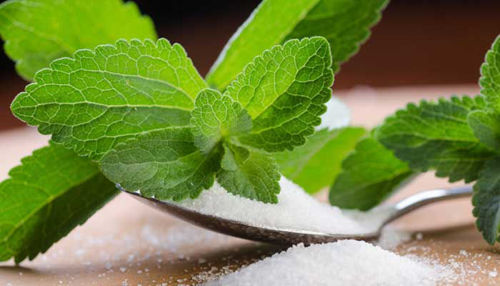
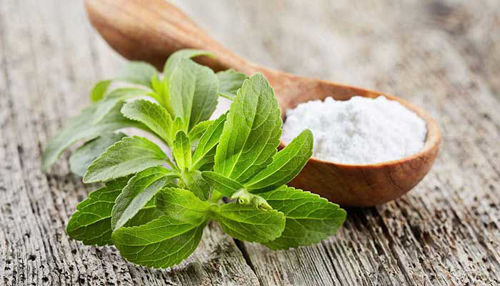
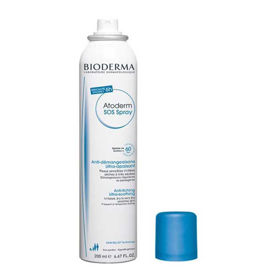
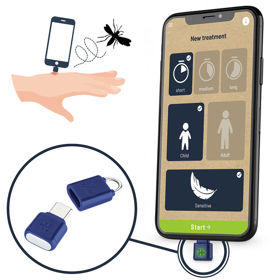
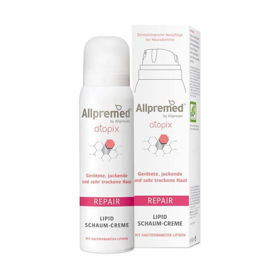

 Facebook
Facebook
 Instagram
Instagram
 info@moja-lekarna.com
info@moja-lekarna.com

